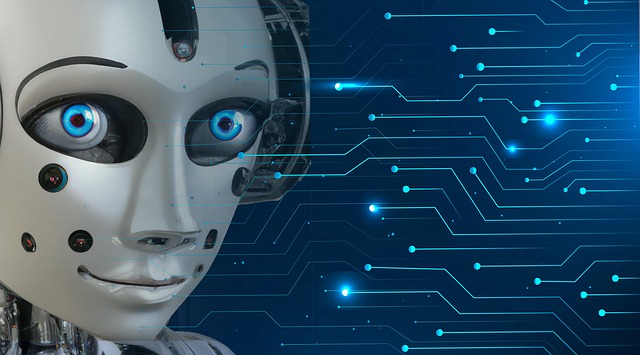# AI Technology Advancements: Navigating the Future of Automation and Intelligent Solutions
The rapid evolution of artificial intelligence (AI) has redefined the landscape of technology, offering innovative solutions that promise to enhance efficiency and productivity across various sectors. As organizations increasingly turn to automation and intelligent systems, understanding the latest advancements in AI technology becomes crucial. This article delves into the transformative potential of AI, the implications for the workforce, and the ethical considerations that accompany these advancements.
## The Transformative Power of AI in Automation
AI technology has made significant strides in automating complex processes that were once thought to require human intelligence. For instance, machine learning algorithms can now analyze vast datasets to identify patterns and make predictions with remarkable accuracy. This capability allows businesses to streamline operations, reduce costs, and improve decision-making. Industries such as manufacturing, logistics, and healthcare have begun to integrate AI-driven automation tools to enhance productivity and optimize resource allocation.
Moreover, natural language processing (NLP) has revolutionized how machines interact with humans. Virtual assistants and chatbots leverage NLP to understand and respond to customer inquiries in real-time, improving user experience and increasing customer satisfaction. By automating routine customer service tasks, organizations can free up human agents to focus on more complex issues, thereby enhancing overall service quality.
As AI continues to evolve, the integration of robotics into automation processes is becoming more prevalent. Collaborative robots, or cobots, are designed to work alongside humans, augmenting their capabilities rather than replacing them. This synergy between human workers and AI-driven machines can lead to increased efficiency and innovation, as employees are empowered to take on more strategic roles within their organizations.
## Implications for the Workforce: Adapting to Change
The rise of AI and automation inevitably raises concerns about the future of work. Many fear that the adoption of intelligent solutions will lead to widespread job displacement. However, a closer examination reveals a more nuanced picture. While certain tasks may become automated, new roles are emerging that require a different set of skills. The demand for AI specialists, data analysts, and cybersecurity experts is on the rise, as organizations seek to harness the power of AI while ensuring the security and integrity of their systems.
Upskilling and reskilling initiatives are essential for workers to remain relevant in an increasingly automated world. Educational institutions and businesses must collaborate to develop training programs that equip employees with the skills needed to thrive in a technology-driven landscape. Emphasizing critical thinking, creativity, and emotional intelligence will be vital, as these human-centric skills are less susceptible to automation.
Furthermore, the shift towards remote work and digital collaboration tools, accelerated by the COVID-19 pandemic, has underscored the importance of adaptability. Organizations that embrace a culture of continuous learning and innovation will be better positioned to navigate the changes brought about by AI technology. In this context, fostering a growth mindset among employees can lead to greater resilience and a more agile workforce.
## Ethical Considerations: Navigating the AI Landscape Responsibly
As AI technology advances, ethical considerations become paramount. The deployment of intelligent solutions raises questions about privacy, bias, and accountability. For instance, AI algorithms trained on biased data can perpetuate existing inequalities, leading to unfair outcomes in areas such as hiring, lending, and law enforcement. Addressing these ethical challenges requires a commitment to transparency and fairness in AI development.
Organizations must prioritize ethical AI practices by implementing guidelines that promote responsible use of technology. This includes conducting regular audits of AI systems to identify and mitigate biases, as well as ensuring that data privacy is upheld. Engaging diverse teams in the development process can also help to create more inclusive AI solutions that better reflect the needs of all stakeholders.
In addition to addressing bias and privacy concerns, the question of accountability in AI decision-making is critical. As intelligent systems make increasingly autonomous decisions, determining who is responsible for those decisions becomes complex. Establishing clear frameworks for accountability will be essential to build trust in AI technologies and ensure that they are used in ways that align with societal values.
## Conclusion: Embracing the Future of AI
The advancements in AI technology present both opportunities and challenges as we navigate the future of automation and intelligent solutions. By harnessing the transformative power of AI, organizations can improve efficiency and drive innovation. However, it is equally important to acknowledge the implications for the workforce and the ethical considerations that accompany these advancements.
As we look ahead, a collaborative approach that emphasizes continuous learning, ethical practices, and accountability will be vital in shaping a future where AI serves as a force for good. By embracing the potential of AI while remaining vigilant about its challenges, we can create a more equitable and sustainable technological landscape that benefits all members of society. In doing so, we will not only navigate the future of automation but also redefine the very nature of work and human-machine collaboration.











